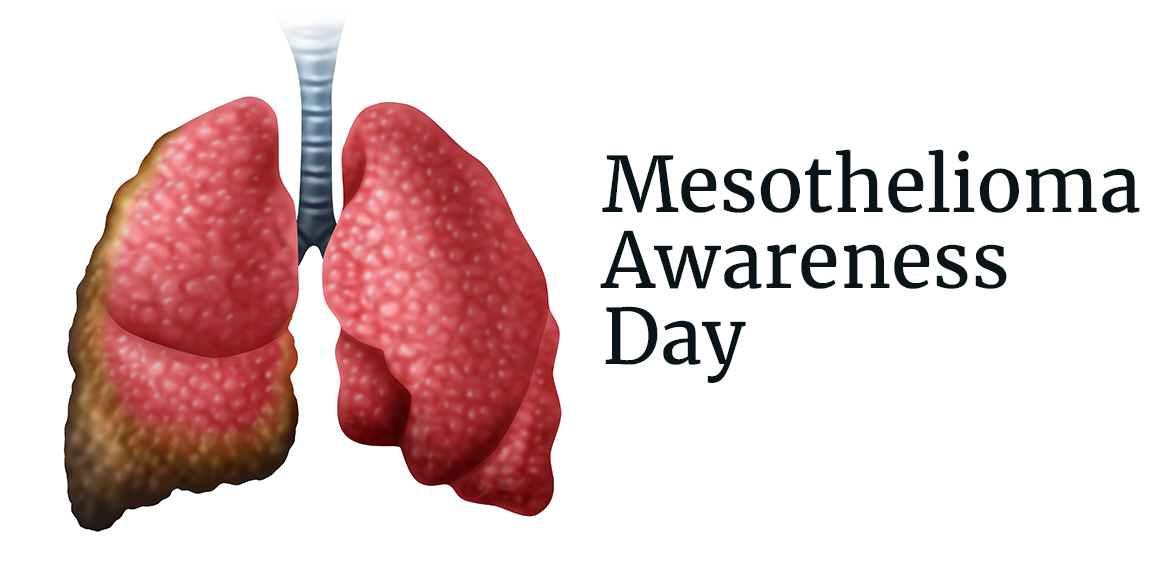Health and Wellness
Bringing attention to Mesothelioma Awareness Day
September 26 marks Mesothelioma Awareness Day, a day to bring attention to the rare, aggressive, and preventable cancer caused, typically by exposure to asbestos.
The day, which is recognized internationally, began in the United States back in 2004 by the Mesothelioma Applied Research Foundation but subsequently became recognized worldwide. It will continue to be recognized internationally this year despite COVID-19.
Raise Awareness About Mesothelioma
“It is important to raise awareness about mesothelioma to help prevent people from getting the disease and to help those who have the disease realize they have it and get help as early as possible,” says Sheila Kirouac, executive director Canadian Mesothelioma Foundation (CMF).
Mesothelioma is almost exclusively caused by exposure to asbestos. Many people think that asbestos was banned a long time ago, and therefore it is no longer a problem. Unfortunately, this is not the case.
“Canadian veterans may have a higher than average exposure to asbestos because it was commonly used in ships, older buildings, and bases here in Canada. The recent 2018 Canadian asbestos ban exempted Canadian bases,” Kirouac noted.
She went on to explain, “Asbestos is common in old buildings, brake linings, etc., and the problem is that it doesn’t just go away. It needs to be safely removed and disposed of. Canada finally banned asbestos in 2018 with some exemptions.”
What is Mesothelioma?
Mesothelioma is a disease that most commonly involves the lining of the lung. It can also occur in the lining of the abdomen, the lining of the testes, and the heart’s lining. The time from exposure to asbestos and mesothelioma development is usually somewhere between 10 and 40 years.
Asbestos-related diseases are the number one cause of workplace death in Canada. Despite a dramatic decline in the use of asbestos since the early 1980s in Canada, the incidence of mesothelioma continues to increase because symptoms of the disease often do not present until decades after asbestos exposure. Kirouac mentioned about 600 people in Canada will receive the news that they have mesothelioma this year.
Dr. Michael Konviser and Dr. Eudice Goldberg founded the Canadian Mesothelioma Foundation (CMF) in 2008 after Dr. Goldberg’s husband, Konviser’s father, died of mesothelioma in 2005. They had not had a lot of support at the time of his diagnosis and treatment and felt that they could help other Canadians affected by this disease. They also felt that it was important to raise awareness about the link between asbestos exposure and mesothelioma.
The CMF is a registered national charity. The goal of the CMF is to raise awareness about mesothelioma and support those whose lives have been affected by the terrible disease. The CMF has a website with online information, runs support groups, and is developing an online network of mesothelioma experts to share information on best practices, latest treatments, latest research findings, including data from clinical trials and more.
The CMF holds medical conferences that pull together national and international mesothelioma expertise to share information and further understand the latest in diagnosis, treatment, and research on mesothelioma. The CMF is also working to support important work being undertaken by the Mesothelioma Research Program at the University Health Network in Toronto.
Mesothelioma Symptoms
Mesothelioma symptoms vary depending on the type of mesothelioma, pleural or peritoneal, testicular, or pericardial. There may or may not be symptoms, and they can be vague or even nonexistent initially.
General mesothelioma symptoms may be very nonspecific. The most common symptoms of pleural mesothelioma symptoms would be chest pain, shortness of breath, weight loss, and cough.
Peritoneal mesothelioma symptoms may include abdominal pain, swelling, or fluid in the abdomen, weight loss, constipation, and decreased appetite.
Pericardial mesothelioma symptoms may include chest pain and shortness of breath.
Testicular mesothelioma symptoms may include pain in the groin, a lump or mass, swelling and/or inflammation.
“The CMF encourages anyone interested to check what measures at your workplace are taken to protect you from exposure to asbestos. If you know or suspect that you or someone you know has been exposed to asbestos, make sure to see a physician with expertise in this area and let them know about this possible exposure,” Kirouac advised.
To make a contribution or to get more information about mesothelioma, go here.










